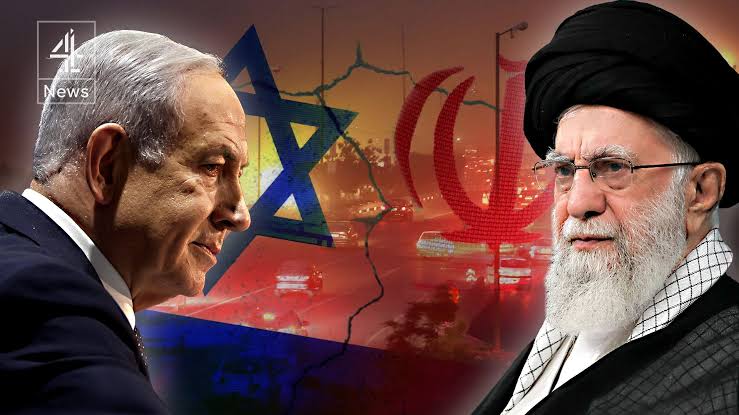NEWS
Iran Fires Ballistic Missiles at Israel — Ayatollah Khamenei Vows “Heavy Blows”

June 13, 2025 – Middle East Region
In a major escalation of regional tensions, Iran has launched a series of ballistic missiles and drone attacks against Israel, following threats by Supreme Leader Ayatollah Ali Khamenei to “inflict heavy blows” in retaliation for recent Israeli military strikes inside Iranian territory.
What We Know So Far
- Missile Launches: Dozens of missiles were fired toward central Israel, including Tel Aviv and Jerusalem. Explosions and smoke were seen rising over major cities. Air defense systems such as the Iron Dome were activated and successfully intercepted many projectiles, but several still managed to reach populated areas.
- Injuries Reported: At least seven Israeli civilians sustained minor injuries from falling debris or panic during evacuations. Emergency services remain on high alert across the country.
- Military Targets: Iran claims it struck several military and strategic sites within Israel. While some impact sites are still being assessed, Israel has reported only limited damage due to successful air defense interceptions.
⚔️ Background on the Escalation
Earlier in the day, Israel carried out a coordinated air operation, reportedly deploying over 200 aircraft and drones to target multiple Iranian nuclear and military installations, including Natanz, Fordow, and Isfahan. High-ranking figures within Iran’s Islamic Revolutionary Guard Corps, including generals and nuclear scientists, were reportedly killed.
In response, Supreme Leader Ayatollah Khamenei condemned Israel’s actions, declaring them “a crime” and pledging swift retaliation. Within hours, Iran made good on that promise, unleashing one of the largest direct missile strikes against Israel in decades.
Global Reaction
- United States: The U.S. military assisted Israel in intercepting the incoming missiles, activating regional missile defense systems and moving additional assets into place.
- International Leaders: Calls for de-escalation poured in from across the globe, with world leaders urging both sides to step back from the brink of full-scale war.
- Regional Tensions: Iranian-backed groups such as Hezbollah and the Houthis have signaled support for Tehran’s actions, raising fears of a broader regional conflict.
Why This Matters
- Unprecedented Aggression: This marks one of the most significant direct military confrontations between Iran and Israel in recent history.
- Civilian Impact: The risk to civilians on both sides is mounting, especially if the conflict continues to intensify.
- Nuclear Risk: The focus on nuclear facilities raises concerns about proliferation, sabotage, and long-term security in the region.
Final Thoughts
This latest exchange of attacks signals a turning point in Middle East tensions. What was once confined to covert operations and proxy warfare has now escalated into open military confrontation. With both Iran and Israel showing no signs of backing down, the world watches anxiously as the situation continues to unfold.












